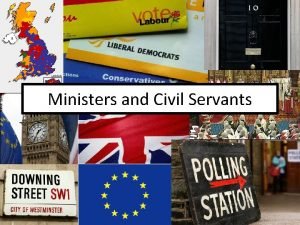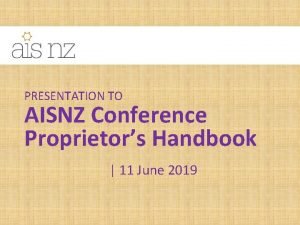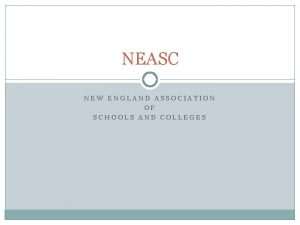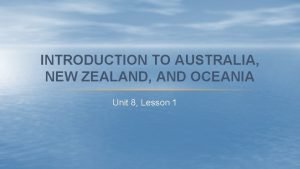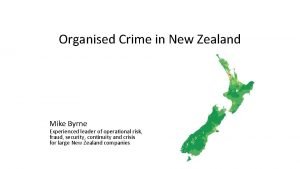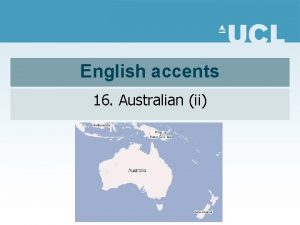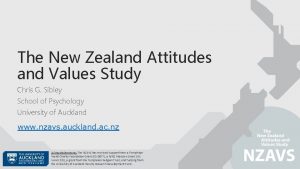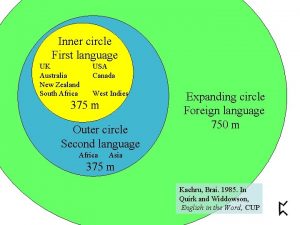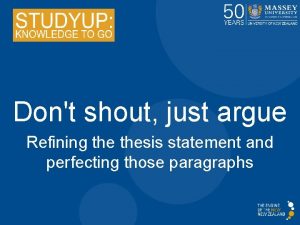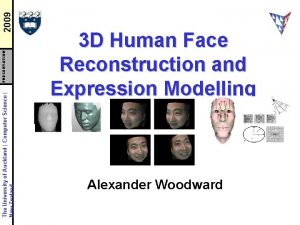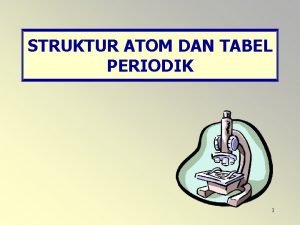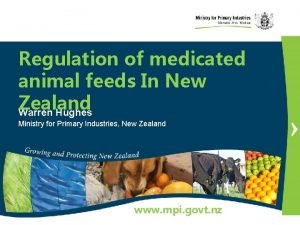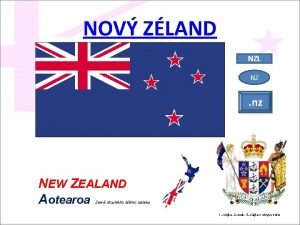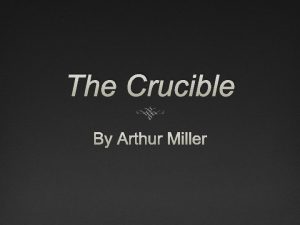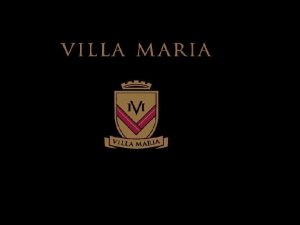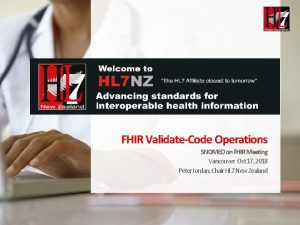The Association of Integrated Schools New Zealand SERVANT








































- Slides: 40

The Association of Integrated Schools New Zealand SERVANT, STEWARD AND INFLUENCER PRESENTATION TO AISNZ Conference Proprietor’s Handbook | 11 June 2019

About AISNZ • Founded 1984 • Subgroup of the Association of Proprietors of Integrated Schools which is the lead organisation for all State Integrated Schools ($7. 00 per student per year) • Provides support and networking specifically in areas of common interest for non-Catholic state-integrated schools • Main June conference, Bursar’s conference, help desk, resources and newsletters, road trips • $1. 00 per student per year

Introducing myself



The Private Schools’ Conditional Integration Act (Now subsumed into the updated Education Act 2017) A BRIEF HISTORY

“Conditional” Integration is conditional upon the Proprietor ensuring: • The School’s Special Character provides a distinctive and authentic choice for parents within the State network of schools • Land buildings are provided for the School

Private Schools’ Conditional Integration Act now Section 33 of the Education Act 2017 “This part of the Act shall bind the Crown”

The Founding Principles • The right to teach, develop and implement programmes reflecting the Special Character of the school and to establish customs and traditions that are authentically Christian • The right to administer staff appointments and arrange the staff composition in a manner that recognises the Special Character of the school • The right to enrol children of parents with a particular connection to the school’s Special Character in the first place, and in the second place enrol children of other parents seeking a Special Character education for their children

Founding Principles …. • The right to extend existing schools and build new ones to meet the demands of legitimate expansion and proven need, including schools with special purposes • The right to own land, school buildings and similar educational buildings and facilities, which make up the Proprietor’s school system • The right of the school’s community to make a tangible financial contribution towards the cost of maintaining its schools by way of fees

Special Character – Definition (1) In this Act, unless the context otherwise requires— education with a Special Character means education within the framework of a particular or general religious or philosophical belief, and associated with observances or traditions appropriate to that belief

Preservation of Special Character of an integrated school (1) An integrated school shall on integration continue to have the right to reflect through its teaching and conduct the education with a Special Character provided by it. (2) Integration shall not jeopardise the Special Character of an integrated school

Preservation of Special Character of an integrated school (3) The proprietor of an integrated school shall, subject to the provisions of the integration agreement, — (a) continue to have the responsibility to supervise the maintenance and preservation of the education with a Special Character provided by the school:

Preservation of Special Character of an integrated school (b) continue to have the right to determine from time to time what is necessary to preserve and safeguard the Special Character of the education provided by the school and described in the integration agreement

Preservation of Special Character of an integrated school (4) If in the opinion of a proprietor the Special Character of the school as defined and described in the integration agreement has been or is likely to be jeopardised, or the education with a Special Character provided by the school as defined and described in the integration agreement is no longer preserved and safeguarded, he may invoke the powers conferred upon him by this Act (Deintegration)

Special Character – Preference of Enrolment (1) Parents who have a particular or general philosophical or religious connection with an integrated school shall have preference of enrolment for their children at the school

Special Character – Curriculum Instruction of pupils Each integrated school shall instruct its pupils in accordance with the curricula and syllabuses prescribed by the “relevant legislation” and by regulations made under that Act: provided that the general school programme shall reflect the education with a Special Character provided by the integrated school, and religious and other examples may be used to reinforce teaching throughout the school day

Special Character – Proprietor Powers and responsibilities of Proprietor i) shall, together with its servants, agents, and licensees, have at all reasonable times access to the school to ensure that the Special Character of the school is being maintained:

Relationship between Section 33 and other enactments Summary Where there are express provisions in S 33 these take precedence over other legislation, but S 33 is to be construed in a sense consistent with other legislation where appropriate and reasonable

Tagged Teaching Positions • “Willingness and ability … shall be a condition of appointment” • Integration Agreement specifies the number/ proportion of tagged positions • Proprietor consultation

Property “The Proprietor owns or leases the school property and must plan, pay for and execute such improvements to the school buildings and associated facilities as may be required in accordance with the Integration Agreement to bring the said buildings and associated facilities up to the minimum standard laid down from time to time by the Secretary of Education. ”

School Property Guide Property Management Information System (PMIS) – HELIOS School Master Plan 10 -Year Property Plan MOE Property Toolbox Access to the school

Attendance Dues 1. Mandatory and legally enforceable 2. “… established in respect of such school or group of schools, and at such rates, and subject to such conditions, as may be approved from time to time by the Minister, by notice in the Gazette” (Section 36(2)) 3. “… shall be used solely for the purpose of paying in respect of the school or group of schools in respect of which it is received for such improvements to the school buildings and associated facilities as may be required by the Integration Agreement … or for such capital works as may be required by the Minister … or for meeting debts, mortgages, liens, or other charges associated with the land buildings that constitute the premises of the school or schools”

4. No revenue received the Proprietor from Attendance Dues shall be used to provide or improve school buildings and associated facilities to a standard higher than that approved from time to time by the Secretary as appropriate for a comparable state school 5. If a Proprietor misuses revenue from Attendance Dues the Minister may withdraw the right to charge Attendance Dues 6. Non payment of Attendance Dues – legally recoverable, suspension of enrolment

New Provisions in Section 33 Section 426: Minister may require information to be provided (1) This section applies in any of the following situations: (a) A Proprietor or a potential Proprietor has applied to integrate a school: (b) The Minister holds reasonable concerns about the ability of a proprietor or potential proprietor to meet any obligation under an integration agreement or under this Part: (c) A Proprietor or potential proprietor has submitted a specific funding request to the Minister or the Secretary.

(2) If this section applies, the Minister may require the relevant Proprietor or potential Proprietor to provide all or any of the following: (a) All of the information needed to assess the financial and managerial capacity of the Proprietor or potential Proprietor: (b) Any other information that the Minister considers relevant to assessing— (i) An application to integrate a school: (ii) Any concerns about the ability of a Proprietor or potential Proprietor to meet any obligation under an Integration Agreement or under this Part: (iii) Any funding request that a Proprietor or potential Proprietor has submitted.

Section 457: Decision-making criteria for Proprietors (1) When making a decision under a provision of this Part, a Proprietor must take into account— (a) The ability of the Proprietor’s State Integrated School or schools to continue to provide the level of education required; and (b) The average per student cost of the continued operation of the Proprietor’s State Integrated School or schools relative to the average per student cost for other State schools; and (c) The extent to which the Proprietor’s State Integrated School or schools provide for students whose needs are not met by other State schools; and (d) The ability of the Proprietor to meet any obligations regarding the Proprietor’s State Integrated School or schools over the next 7 years.

(2) A Proprietor must assess the Proprietor’s compliance with subsection (1) at least once every 5 years. (3) However, the Secretary may direct a Proprietor to carry out an assessment at any time if the Secretary considers it appropriate in the circumstances. (4) The Proprietor must, as soon as practicable— (a) Complete any assessment begun under subsection (2) or (3); and (b) Provide the Secretary with a copy of the assessment.

Resources 1. Catholic Education Office Board Handbook

2. AISNZ Proprietor Handbook

Best Practice Strategies Proprietor/Board Relationship Memorandum of Understanding 1. Special Character 2. Proprietor Appointees to the Bo. T 3. Enrolments 4. Appointment to Tagged Positions 5. Property and Finance 6. General

(CROWN) MOE IA Proprietor Integration Agreement Pioneer Guardian Owner/landlord Crown Entity BOT Governor WHY Education with a Special Character Consultation Prop appointees WHERE CHARTER Tagged Preference WHO Principal, Tchg Staff, Enrolments Land Buildings Spec Char $$ WHAT Curriculum, Resources, Finances, F&E HOW Tchg & Lng, Admin Day to Day

Board and Principal (Governance and Management) The Board largely occupies the strategic space. It works with the Principal (it’s chief adviser as well as CEO) to establish DIRECTION

DIRECTION 1. The school charter (changing under the new legislation) 2. Policy framework (Principal required to have procedures to operationalise all policy) 3. A schedule of delegations 4. Abiding by the law of the land All subject to, and in harmony with, the Special Character of the school

Boards should spend 90% of their time on the Why, Where, and Who Very few do (Some research suggests 3 -10% of Board time) 90% of all organisational failure can be tracked back to failure to address the Why, Where and Who questions

Boards are encouraged to operate a ‘high trust, high accountability’ culture Provided Board and Principal are constantly asking/answering the Why, Where and Who questions then the Principal should have discretion to manage the How and What, provided they achieve the desired results. (The Principal has discretion to manage the school as he/she sees fit on a day-to-day basis. )

Accountability (How does the Board know its high trust approach is working? ) 1. 2. 3. 4. 5. Reports to the Board audits ERO/Proprietor reviews Principal appraisal Other

Introduction TAGGED TEACHING STANDARDS AISNZ A State integrated school must on integration continue to have the right to reflect, through its teaching and conduct, the education with a special character provided by it (Education Act Section 416(Part 1)) A tagged position acknowledges that the holder of that position makes a particular and strategic contribution to the delivery of an Education with a Special Character provided by the school. Section 464(c)(ii) of the Education Act requires that a tagged position advertisement include the following wording ‘willingness and ability to take part in religious instruction appropriate to that school shall be a condition of appointment’

Conduct for Tagged Positions 1. We are part of the whole school community. We use our specific strengths and skills to support and promote the Vision and the Mission of the School. 2. We are willing and able to deliver all areas of the New Zealand curriculum in a manner which reflects the School’s Special Character as described in the School’s Integration Agreement, Charter [Strategic Plan] and other documentation. 3. We support, uphold and are actively involved in the total life of the School and its Special Character, by participating in and contributing to, where required, to special events, approved by the Board of Trustees which uphold the Special Character of the School (eg. Special Assemblies, Staff Devotions, etc. ). 4. We are role models for pupils, colleagues, parents and caregivers - living the Vision, Mission and the Values of the School. 5. We refrain from doing or saying anything that would be antithetical to the School’s Special Character. 6. We acknowledge that supporting and upholding the School’s Special Character includes the manner in which we conduct our personal lives. 7. We are willing and able to play our part in delivering the aims and objectives of the School Charter [Strategic Plan]. 8. We abide by the school Code of Conduct

Performance Criteria for Tagged Positions 1. Demonstrate commitment to reflecting the School’s Special Character in all aspects of teaching practice. 2. Demonstrate ability to deliver all areas of the New Zealand curriculum in a manner which reflects the School’s Special Character as described in the School’s Integration Agreement, Charter [Strategic Plan] and other documentation. 3. Use critical inquiry, collaborative problem-solving and professional learning to improve professional capability to take part in religious instruction appropriate to the School. 4. Create and maintain learning-focussed environments which honour and reflect the School’s Special Character 5. Demonstrate familiarity with the Special Character of the School as presented in the School’s Integration Agreement, Charter [Strategic Plan] and supporting documents. 6. Ensure school development features which focus on the Special Character of the school.
 Difference between public servant and civil servant
Difference between public servant and civil servant Aisnz
Aisnz Association of integrated schools
Association of integrated schools New england association of colleges and schools
New england association of colleges and schools When did hundertwasser move to new zealand
When did hundertwasser move to new zealand New zealand official languages english
New zealand official languages english New zealand disability strategy
New zealand disability strategy Wong wai yin
Wong wai yin New zealand accent vowels
New zealand accent vowels Lesson 1: an introduction to oceania
Lesson 1: an introduction to oceania Alpha lipid new zealand
Alpha lipid new zealand Is new zealand a hotspot
Is new zealand a hotspot Aotearoa the land of the long white cloud
Aotearoa the land of the long white cloud Capital of new zealand
Capital of new zealand Natives of new zealand
Natives of new zealand Urfolk new zealand
Urfolk new zealand Slidetodoc.com
Slidetodoc.com New zealand health strategy 2016
New zealand health strategy 2016 New zealand holiday 2016
New zealand holiday 2016 Nonrhotic
Nonrhotic Nurse anesthetist new zealand
Nurse anesthetist new zealand Saurabh paranjape photography
Saurabh paranjape photography New zealand attitudes and values study
New zealand attitudes and values study Measurement standards laboratory of new zealand
Measurement standards laboratory of new zealand Inner circle australia
Inner circle australia Internal medicine society of australia and new zealand
Internal medicine society of australia and new zealand How long should a paragraph be
How long should a paragraph be New zealand
New zealand New zealand population
New zealand population Kumara new zealand food
Kumara new zealand food Antoine lavoiseir
Antoine lavoiseir Acvm new zealand
Acvm new zealand New zealand main language
New zealand main language Mori new zealand
Mori new zealand Hobitín new zealand
Hobitín new zealand Acn new zealand
Acn new zealand Acn new zealand
Acn new zealand Who is the proctors new servant
Who is the proctors new servant Huntsville city schools powerschool login
Huntsville city schools powerschool login Reach vs target vs safety
Reach vs target vs safety American heart association cpr in schools
American heart association cpr in schools
